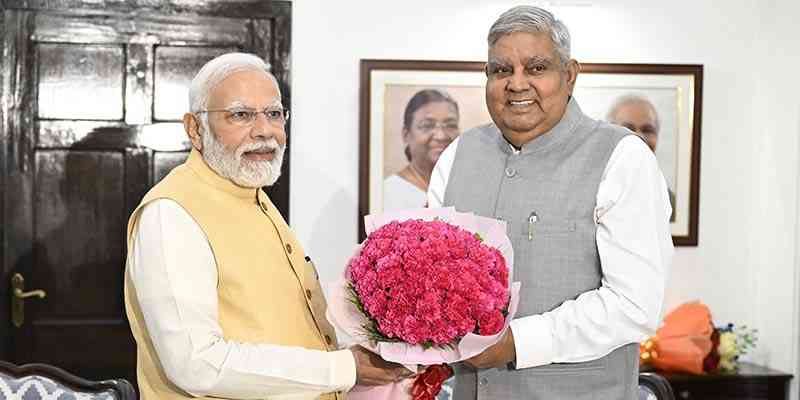In a surprising political development on July 21, 2025, Jagdeep Dhankhar resigned from his post as the Vice President of India, citing health reasons. This sudden decision, coming less than three years into his term—expected to last until 2027—has triggered intense speculation about underlying causes linked to political and judicial conflicts.
The Sudden Resignation and Official Explanation
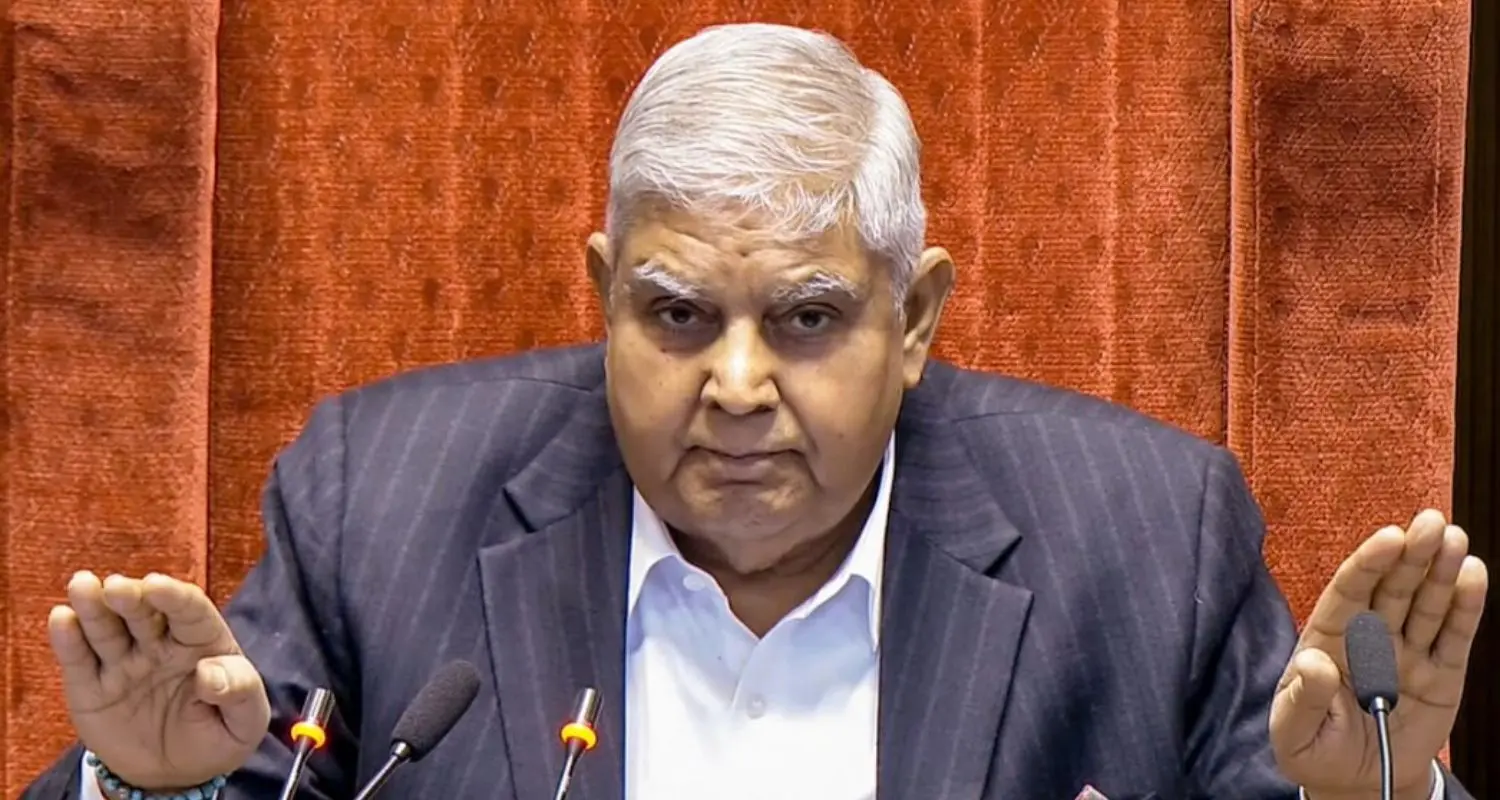
Dhankhar, aged 74, officially handed over his resignation to President Droupadi Murmu, expressing in his letter a need to prioritize his health and follow medical advice. He also conveyed gratitude towards the President, Prime Minister Narendra Modi, and members of Parliament for their support during his tenure. His resignation came on the first day of the Monsoon Session of the Rajya Sabha, where he also presided over proceedings and administered oaths to new members.
Upon acceptance of his resignation by the President, the Deputy Chairman of the Rajya Sabha, Harivansh Narayan Singh, assumed the role of acting Chairman until a new Vice President is elected.
Political Context and Judiciary Clash
While health reasons were stated overtly, insiders and political leaders suggest the resignation results from more complicated political tensions. Recently, Vice President Dhankhar, who is also the Chairman of the Rajya Sabha, approved an Opposition motion to impeach Justice Yashwant Varma, following the discovery of a large sum of cash at the judge's residence amid allegations of misconduct.
This move was reportedly opposed by the central government, which led to a heated phone exchange between Dhankhar and government officials. The conflict escalated to the point where there was talk of a no-confidence motion against Dhankhar. To avoid a public confrontation and potential political humiliation, Dhankhar chose to resign.
Opposition and some political commentators see this development as indicative of serious discord between the Vice President (who is constitutionally expected to be neutral) and the ruling party’s leadership. It also highlights tensions involving the judiciary's independence and political interference. Congress leaders called for transparency, questioning if health was the sole reason or if political pressures played a role, expressing skepticism over the abruptness and timing.
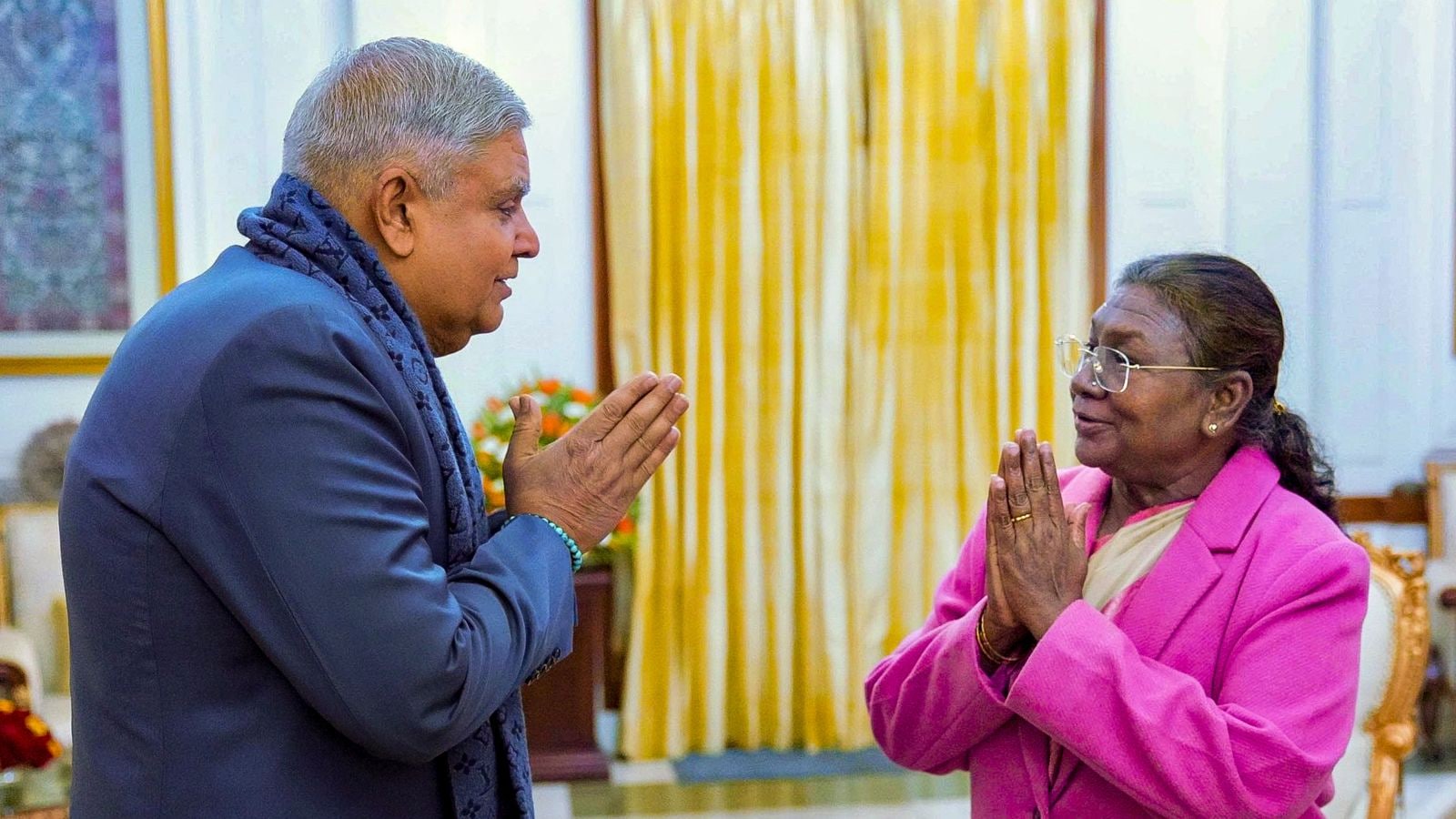
Political Career of Jagdeep Dhankhar
Jagdeep Dhankhar has had a long and varied political journey. Beginning as a member of Parliament from Rajasthan’s Jhunjhunu constituency in 1989, he later joined the Bharatiya Janata Party (BJP) in 2003. He held several key positions within the party before being appointed the Governor of West Bengal in 2019, where he frequently clashed with the state’s Trinamool Congress government, reflecting his assertive political style.
He resigned as Governor in 2022 after being nominated for the Vice Presidency, a role that made him the ex-officio Chairman of the Rajya Sabha. His tenure in this high constitutional post was marked by his active approach in parliamentary proceedings, including his controversial stand on judicial accountability, which appears to have played a part in current political events.
Following Dhankhar’s resignation, a Vice Presidential election must be completed within 60 days, with the Ministry of Home Affairs issuing an official notification. The electoral college, consisting of members from both Houses of Parliament, will elect the successor through a proportional representation system with a secret ballot.
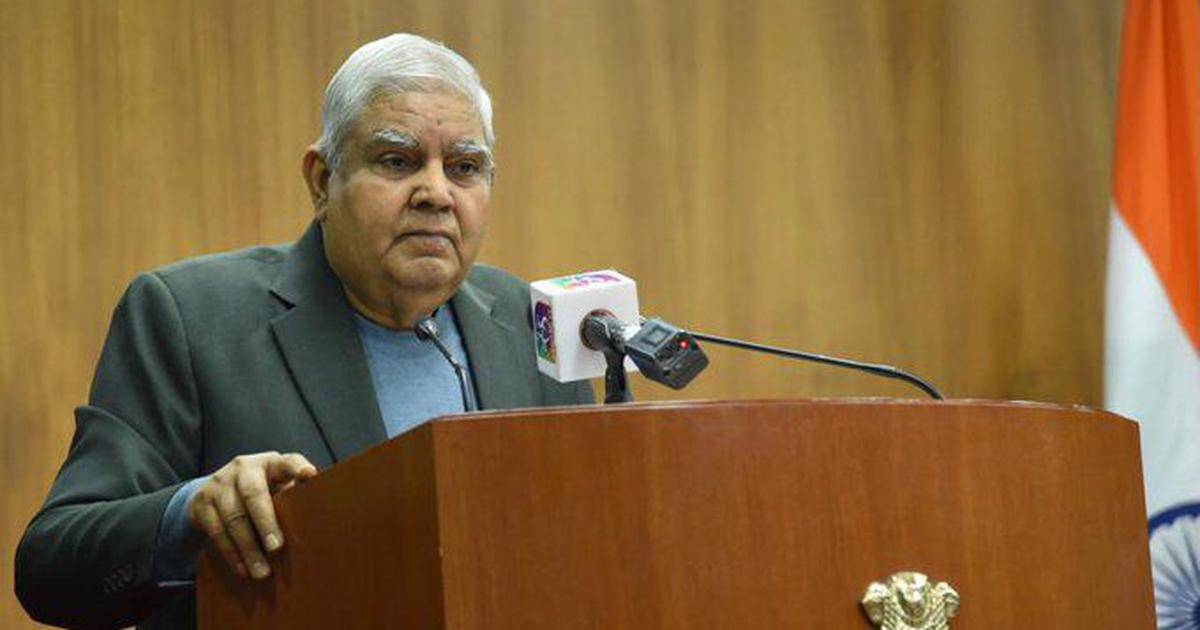
Potential candidates from the ruling National Democratic Alliance (NDA) are reportedly under discussion, amid the BJP’s internal transitions as it prepares to appoint a new national president later this year. Meanwhile, Parliament continues its Monsoon Session with heightened political sensitivity.
Although Dhankhar formally cited health reasons, the timing and concurrent political events suggest his resignation was influenced by tensions between constitutional roles and political expectations. This incident underscores the complex dynamics between judiciary oversight, legislative authority, and executive influence in India’s democratic setup. It also raises questions about the independence of constitutional positions like the Vice Presidency and its role as the Rajya Sabha Chairman.
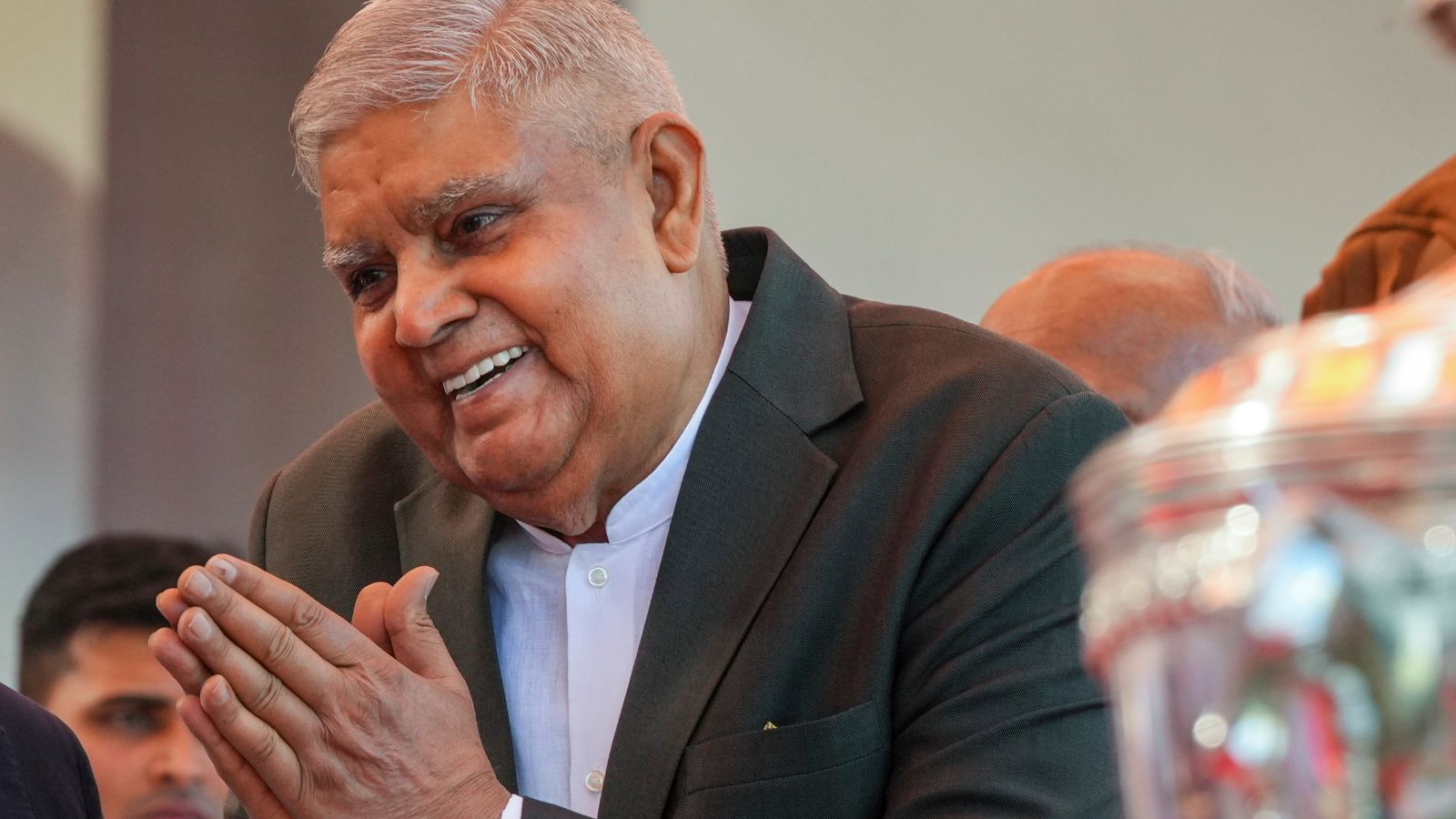
The event has polarized opinions: some view it as a necessary political stand against perceived government meddling in judiciary affairs, while others see it as a fallout of internal party disputes and disagreements over parliamentary conduct. The BJP’s silence and opposition leaders’ calls for transparency hint at an ongoing political narrative that will unfold as the country prepares to elect a new Vice President in the coming weeks.
This development serves as a reminder of the delicate balance in India’s political and constitutional framework, where the interplay between health, politics, and institutional integrity creates moments of uncertainty and reflection for the nation.
With inputs from agencies
Image Source: Multiple agencies
© Copyright 2025. All Rights Reserved Powered by Vygr Media.

